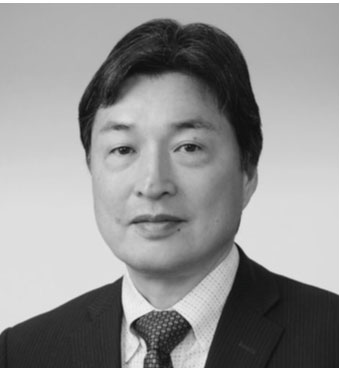 Professor Toru Ishida graduated from the Department of Information Science, Faculty of Engineering, Kyoto University in 1976, and from the Graduate School of Engineering of the same university in 1978. Thereupon, he joined Yokosuka Electrical Communication Laboratory, Nippon Telegraph and Telephone Public Corporation (now Nippon Telegraph and Telephone Corporation or NTT). He became a senior research engineer, supervisor with NTT Information Communication Processing Laboratories in 1989, and with NTT Communication Science Laboratories in 1991. Moving to Kyoto University, he became a professor in the Department of Information Science, Graduate School of Engineering. Since 1998, he has been a professor in the Department of Social Informatics, Graduate School of Informatics, Kyoto University.
Professor Toru Ishida graduated from the Department of Information Science, Faculty of Engineering, Kyoto University in 1976, and from the Graduate School of Engineering of the same university in 1978. Thereupon, he joined Yokosuka Electrical Communication Laboratory, Nippon Telegraph and Telephone Public Corporation (now Nippon Telegraph and Telephone Corporation or NTT). He became a senior research engineer, supervisor with NTT Information Communication Processing Laboratories in 1989, and with NTT Communication Science Laboratories in 1991. Moving to Kyoto University, he became a professor in the Department of Information Science, Graduate School of Engineering. Since 1998, he has been a professor in the Department of Social Informatics, Graduate School of Informatics, Kyoto University.Professor Ishida has recorded outstanding achievements across a wide range of subjects, including multiagent systems, digital cities, intercultural collaboration, and the Language Grid.
After joining NTT, he produced a number of important results in the research field of multiagent systems. In particular, his researches into dynamic reorganization of multiagent systems and into real-time search for changing goals have been highly rated. He laid the foundation for development of that research field by creating research communities on the subject. He was instrumental in establishment of Autonomous Agents and Multiagent Systems (AAMAS), the top international conference in the field, and served as chair of its first conference.
Since taking up a position at Kyoto University, Professor Ishida has driven a variety of research projects. He adopted an approach of conducting fundamental research and experimental research in parallel, with a view to connecting information communication technology with society. One of his research projects concerned a digital city, a city in a virtual space. On a project called Digital City Kyoto, he collaborated with residents and other research organizations to collect information about the actual city.
Residents and tourists visited the city in a virtual manner through a geographical information system or 3D interface and were able to communicate with each other through help extended by a software agent. The activity developed into a forum consisting of more than 100 members, who are either local residents or representatives of industry, government and academia.
Professor Ishida has also made important contributions in research into intercultural collaboration that fosters mutual understanding among people beyond linguistic and cultural barriers, and research into the Language Grid, a mechanism for providing language resources as services to enable people to share these resources. The objective was to facilitate construction of a multilingual environment for cooperative work. These concepts of intercultural collaboration and language services were the brainchildren of Professor Ishida. Today, 170 organizations from 22 countries participate in the Language Grid. More than 220 language resources, including various machine translation systems and specialized dictionaries, are provided as web services. The Language Grid has been used in cooperation with an NPO to support agriculture in Vietnam. This feasibility study project has been highly rated as can be seen from the fact that the Ministry of Agriculture and Rural Development of Vietnam has adopted it as an official project.
For the achievements mentioned above, he was designated as a fellow by the IEEE, the Information Processing Society of Japan, and the IEICE. He also received a Telecom Systems Technology Award from the Telecommunications Advancement Foundation, a Science and Technology Award from the Minister of Education, Culture, Sports, Science and Technology, and Achievement Awards from both the Japanese Society for Artificial Intelligence and the IEICE.
He has dedicated himself to education of gifted individuals who are capable of exploiting knowledge on information communication to contribute to society at large. For example, he played a central role in establishment of Kyoto University Design School. His contributions to society include his service as president of the IEICEfs Information and Systems Society, vice-president of the IEICE, and member of various committees related to national science and technology policies, such as the Science Council of Japan. His wide-ranging contributions to development of the information communication field have been outstanding and we are convinced that he is well-qualified to receive a Distinguished Achievement and Contributions Award from the IEICE.